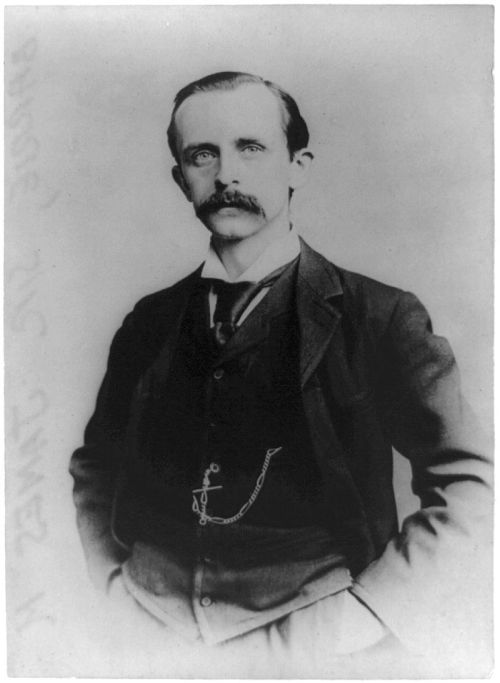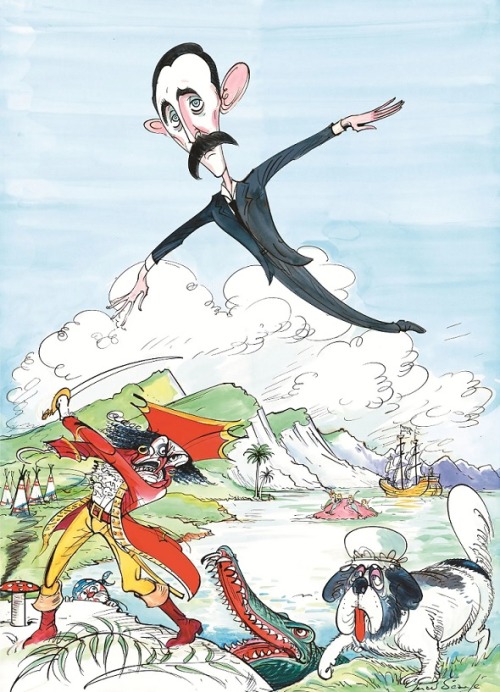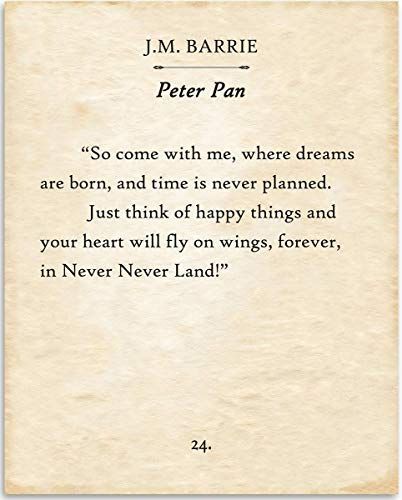#playwright
The Author James Matthew Barrie was born on May 9th 1860 in Kirriemuir.
J M Barrie, as he became known, received his early education from The Glasgow Academy and Dumfries Academy. Despite his earnest wish to become a writer, his family emotionally blackmailed him to pursue a worthwhile profession, for instance, ministry. However, he struck a bargain that he would receive higher education from a university with a major in literature. While studying at University of Edinburgh, he served as a drama reviewer for Edinburgh Evening Courant. In 1882, he earned his Masters of Arts degree.
I think we all know about his most famous work, Peter Pan so I have dug up a few alternative facts on Barrie for this post, he was a friend of fellow author Arthur Conan Doyle and in a “spoof” tale about Sherlock Holmes he was the first to “kill off” the famous detective.
Barrie was something of an eccentric: he used to order Brussels sprouts every day for lunch purely because he enjoyed saying the words.
He set up a celebrity cricket team featuring G. K. Chesterton, Arthur Conan Doyle, Jerome K. Jerome, A. A. Milne, and H. G. Wells. They were named the Allahakbarries In the mistaken belief that the Arabic phrase ‘Allah akbar’ means ‘heaven help us’ (it actually means ‘God is great’). They were active as a cricket team between 1890 and 1913.
One of J. M. Barrie’s less well remembered stage works was the 1901 comedy Quality Street, set during the Napoleonic Wars. The play is not read or revived much now, but its lasting legacy was in providing the confectioners, Mackintosh’s, with a name for their new chocolates in 1936, so Quality Street got their name from Barrie’s play.
Not all his plays were successful and as you would expect from a literary man like Barrie he wittily summed this up with this assessment that ‘some of my plays peter out, others pan out’
Post link
Yes!! Even you!
Basically, a few months ago, I was approached and asked to write a script for a play somebody had an idea for, and wanted to direct. Had I ever written anything like this before? Nope. Anyway, ‘she.’ came to be - the story of a voiceless assault victim. The experience was incredible, we worked with such an exciting cast, and donated the money to the Dublin Rape Crisis Centre. But I took one thing away from it - writing a script is life changing. Here is why EVERY WRITER needs to write a play.
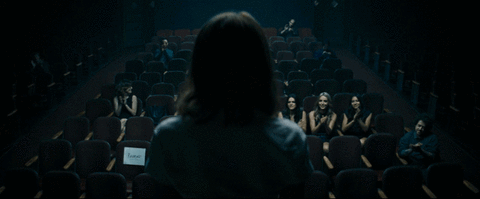
1. Writing exclusively dialogue is hard.
Are you one of those writers who can write enthralling, captivating descriptions, but every conversation is an identical flop? Writing a script will challenge you - all you have to work with is dialogue! And the odd ENTER STAGE RIGHT.
2. Your audience is entirely under your control.
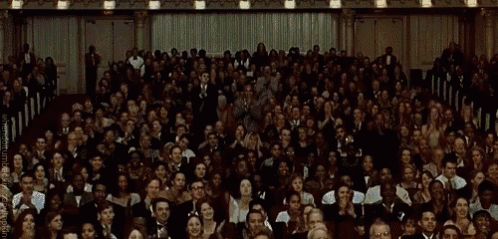
A novel is a private thing. A novel is for you to read, curled up in your room, to react to alone. At your own pace, you can take the time to think about it as the story unfolds overtime. But when you’re writing a play, all the information is revealed to the audience at exactly the moment you want. You (hopefully!) have the audience’s entire attention - the pauses are as you want them to be, not for as long as somebody wants to put the book down. You give them exactly as much time to think about something as you want them to. The play doesn’t have to make it to the stage for this experience. It’s all about thing about how your story processed.
3. You can experiment with things you just can’t do in a novel.
bUt yOu CaN dO whatever YoU WaNt iN yOuR NoVEl. Not as much as you can do on a stage! In terms of narrative, and plot development, and backstory - again, it doesn’t have to make it to a stage, it’s just about changing the way you think as a writer. In a play, you can put scenes wherever you think works, make everything a mess which suddenly dawns in the last scene. The world is yer erster!
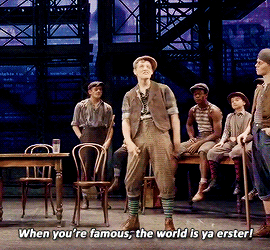
4. You unlock a whole new world of tools to work with.
Lemme say it one more time - YOUR PLAY DOES NOT HAVE TO MAKE IT TO A STAGE FOR YOU TO LEARN FROM THESE But you suddenly have several new ways to tell your story. Lighting! (COLD LIGHT floods the stage.) What a way to convey a mood! Stage directions! Parentheticals! Cuts and transitions!
5. Wait, so how am I meant to apply this to my novel?

How, exactly, are you meant to apply this to your beloved WIP? I don’t want to be a playwright, you say! I’m a novelist! Well, let me tell you, your dialogue will have improved. Massively. You’ll have a new, interesting mindset on writing stories. And maybe, someday, you’ll make it to Broadway..
-
I hope this was helpful! As always, if anyone has any writing related questions, feel free to message me, Aoife, @writingguardian
My next post will likely be some with actual play writing advice - so stay tuned! X
In honor of World Theatre Day, we’re highlighting theatre artists and the work they do.
(pictured above) Director Chay Yew during a rehearsal of There’s Always the Hudsonat the 2017 Theatre Lab.

Andre De Shields participates in a reading of Lemon Andersen’s ToasT at the 2012 Theatre Lab. De Shields was most recently in the 2019 Best Musical Tony Award winner, Hadestown.

Playwright and composer Jeanine Tesori works with Judy Kuhn, Raul Esparza, and Beth Malone on Fun Home at the 2012 Theatre Lab. Fun Home went on to win 5 Tony Awards in 2015, including Best Musical.

The Dreaming Zenzile team during rehearsal at the 2019 Theatre Lab.

Alex Brightman, most recently on Broadway as the titular character in Beetlejuice, rehearses a song from an untitled musical by Jeanine Tesori and David Linsay-Abaire, adapted from the play Kimberly Akimbo at the 2017 Theatre Lab.

Playwright Paula Vogel and director Rebecca Taichman workshop Indecent at the 2013 Theatre Lab. Indecent went on to win 2 Tony Awards in 2017, including Best Play.
1. © 2017 Sundance Institute | Photo by Jonathan Hickerson; 2. © 2012 Sundance Institute | Photo by Fred Hayes; 3. © 2012 Sundance Institute | Photo by Fred Hayes; 4. © 2019 Sundance Institute | Jen Fairchild; 5. © 2017 Sundance Institute | Photo by Jonathan Hickerson 6. © 2013 Sundance Institute | Photo by Fred Hayes
Post link

